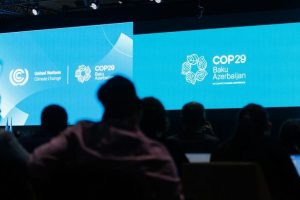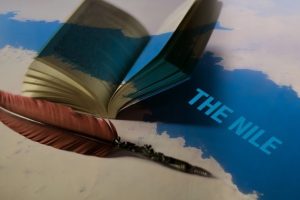BY FITSUM GETACHEW
Ever since the inclusive national dialogue has been a subject of discussion among people there have been contrasting opinions about its success and whether it would really manage to solve all the perennial problems of the country. Many have said it looks wonderful on paper but is it practicable and can it achieve its intended objectives remains a huge asks, they say. There have been several explanations on the media about how this dialogue could proceed and what ways it will use to attain its goals.
We have seen several of the commissioners who lead the national dialogue present their case to the public trying to wash away the skepticism expressed by some people including certain political parties who view the national dialogue as yet another creation of the ruling party and indirectly a means to prolong its monopoly of power.
The members of the commission have been busy explaining that the National Dialogue and the ruling party or the government for that matter do not have any direct or hierarchical relations because the commission presents its works to the House of Peoples Representatives and they have been promised that no one from the ruling party or the executive would interfere in their operations and still less give them orders.
In interviews we heard and read from the chief commissioner of the national dialogue commission Professor Mesfin Araya that if there was any intervention in the commission’s works he would resign. He has said multiple times that the members of the commission are all professionals who had their own jobs and engagements and did not join the commission for any gain.
They were volunteers who wanted to contribute their share of knowledge and expertise with their country men and women and be useful in the construction of a new society based on democratic principles and peaceful discussions to solve any national issue or create a sense of national purpose based on thorough understanding of one another and never resort to conflicts or violence in order to handle an issue.
They were suggested by people who knew them well and presented to the House who gave them the appointment. Hence these commissioners are people with no political or other interest except that of seeing a society that is based on open and candid discussions to solve all sorts of problems that have been leading it to continued misunderstanding and continuous conflicts.
The National Dialogue commission may not have been well promoted so that everyone would have a clear understanding of who it is and how it functions and what its objectives are. Clearly the chief commissioner says those who are skeptical about the duties and missions of the commission do not have a clear understanding of the commission. Its major objective is to give a chance to all vested interests in the country in their capacity as citizens and every sector of the society will have to be given a chance to contribute their share for the discussion. There should be no exclusion of any one nor should there be any perception of exclusion in this huge discussion that will be carried after the preliminary activities have been carried out throughout the country.
The commission is now in its tenth month carrying out its responsibilities once its offices have been established and the necessary personnel have been recruited and filled so that the commission can go into its mission. This has been a daunting task because it took a lot of time and resources according to the commissioners’ explanation. But above all the main challenge for the commission is to create a sense of hope and purpose on the activities and operations of the commission because if people do not have confidence and trust in the commission’s activities and programs, there cannot be any hope of success.
This is a nationwide activity but it also involves those who are not residing in the country such as the diaspora. There are an estimated five million citizens living abroad and the commission cannot ignore them by any means. May be it is even easier to reach them and have their opinion on what sort of issues must be raised for discussion. In fact the first activity of the national dialogue commission is to gather and select agenda items that will be presented for discussions.
No item will be excluded a prior and no interest group will be left out because every citizen whether they live in the urban areas or in rural areas or whether they are very far away from the centre of the country or near will not be left out. That is why people need to have trust in the process because it is going to be all inclusive and the preliminary activity carried out up to now has been selecting agendas from all corners of the country. It has been a very valuable operation but there still remains a lot to do including the areas where sporadic instability due to conflicts reigns. The chief commissioner has insisted that even groups who have been involved in conflicts are not excluded from the discussions but they need to lay down their arms.
There are those who have reservations about how all these agendas can be gathered and about how they can be discussed thoroughly given the vast number of issues that may be presented on the table. The commissioners have however explained that the process will be as inclusive as possible and all major issues will be entertained for consideration. It is clear that there is no chance of representing each and every individual idea to the table but concise groups will be considered.
People have their own associations and gatherings when they live together in communities in a certain area and the commissioners will go there to take notes of the major problems these people face as citizens. Hence they will definitely have a chance to air their views and ideas. The advantage of collecting all the issues of the people is to be able to select those that can be hammered out locally and leave them there and those that need national intervention or must be included in the dialogue at the national level.
Ethiopia has never had a similar experience in the past and whenever there were complaints of a certain group of people against a perceived enemy or rival, what used to be done was resort to force rather than try to iron out the differences with discussions and negotiations.
And we have seen how this mechanism failed us several times not producing lasting solutions to the problem but also securing lasting peace. Problems that have been resolved by force do not actually end by resolving them for good. The use of force may seem to solve the problem for a while but then after some time it will re-explode and result in more violence and conflicts. It is hence such vicious circle that must be broken once and for all with the understanding of the problems clearly and discussions for a permanent solution.
During the past decades there have been more than enough clashes among peoples in Ethiopia and these have caused the country immense resources it could hardly afford. It has been pulled back by the conflicts whenever it was trying to extricate itself from abject poverty. This is because there were no chances of a national dialogue that would give the opportunity for everyone to have their say in front of a neutral body such as the national dialogue commission. It may be unprecedented in Ethiopian history but it is worth trying because we cannot afford to be entangled with the kind of problems we are facing for ages and continue with this pace.
Ethiopia is not the only country in the world that has several social issues not only present ones but also historical ones that are cause for strife today. But these countries have realized that with discussions and singling out the problems they have resolved those they can and progressed ahead. They have established that past stories cannot be changed because they are gone and they have realized that they had to live with them. But they have also used them to learn from the past problems.
History has taught us that there have been horrible wars between nations and groups of people in a certain nation but once those years have passed and days have changed there have been adaptations to the current reality changing what can be changed and leaving aside what cannot. When it is the case there have been admissions of guilt and asking of excuse and when appropriate and possible compensations for the wrongs have been carried out. But that history gets to rest and we go ahead. This must be attempted in our country too because there are those who continue to live in the past and attribute today’s generation for what allegedly happened years ago.
The national dialogue is expected to dig out all these wrongs and discuss them clearly so that people have a clear understanding of their historical chapters and then fix them when possible or go ahead with a new state of mind. The most important thing to do is to look for a better future for the coming generation and not get fixed on a certain stage of history that is already past and continue to create cases for conflict and in some cases even revenge. Revenge on account of what has already happened in the past is not something that will help us face the future peacefully and the vicious circle will continue and one of the most important objectives of this inclusive national dialogue must be to avoid all these excesses and wastage and begin afresh with a clean state of mind and purpose.
In the end discussions will clear our thoughts and open a new era of democracy in our society. It is only through open and frank discussions that we can heal the wounds of the past. Get over them and reach a national consensus that we definitely need in order to progress in an atmosphere of peace and reconciliation. In a way the national dialogue will be a basement for true democracy in our country. It will not solve all the problems of the country but it will be one step nearer to that objective.
The Ethiopian Herald February 16/2023





